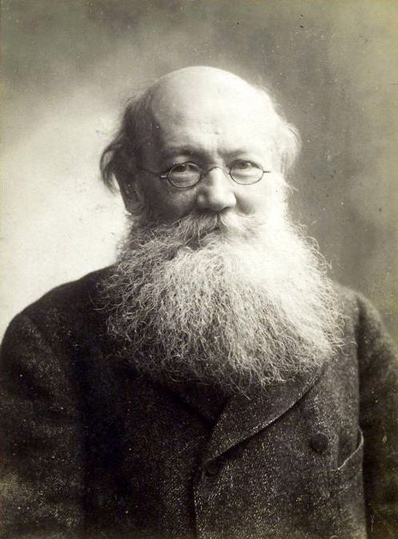In the vast tapestry of human existence, the interplay between individual, indigenous, and group evolution forms a rich backdrop against which the Bahá’í teachings elucidate a profound narrative of progress and unity. Humanity, like a symphony, is composed of diverse instruments—each contributing its distinctive sound to the collective harmony. The Bahá’í perspective offers a lens through which to appreciate this intricate composition, positing that the evolution of humanity transcends mere biological progression, encapsulating spiritual and social dimensions as well.
The Individual: A Microcosm of Potential
The individual represents the smallest unit of the human experience, yet within this microcosm resides an expansive reservoir of potential. Bahá’í teachings enshrine the belief that each person is intrinsically valuable, endowed with the capacity for personal development and moral responsibility. This paradigm elevates the notion of the individual from a mere participant in societal evolution to a pivotal architect of that very evolution. Through the recognition of one’s own spiritual gifts and faculties, individuals are called to embark on a journey of self-discovery and transformation, contributing to their communities’ upliftment.
Moreover, the cultivation of virtues such as compassion, honesty, and diligence does not occur in a vacuum; it is, in essence, the refinement of one’s inner character that radiates outwardly to affect group dynamics. The Bahá’í model posits that as individuals evolve, they serve as catalysts for communal progress, analogous to how a single seed germinates to nurture an entire forest. This metaphor compellingly illustrates that individual growth is foundational to the broader development of society.
The Indigenous Perspective: Guardians of Cultural Heritage
Indigenous peoples encapsulate a wealth of cultural heritage, wisdom, and traditional knowledge that are often overlooked in contemporary discourse. These communities have occupied the Earth for millennia, serving as custodians of ecological balance and social structures that resonate with the principles of interconnectedness and respect for the natural world. Their teachings emphasize sustainability, collective responsibility, and the sanctity of life—ideals that resonate with Bahá’í tenets advocating for the well-being of both humankind and the planet.
The evolution of humanity, as viewed through the lens of indigenous perspectives, underscores the importance of valuing diverse worldviews. This approach invites a revisitation of historical narratives that have sidelined indigenous knowledge systems. By embracing this rich tapestry of experience, the Bahá’í teachings advocate for inclusivity and recognition of the contributions of indigenous cultures to the collective human story. They encourage a symbiotic relationship where cultural exchange and mutual enrichment foster unity amidst diversity.
Group Dynamics: The Collective Evolution
While individuals and indigenous groups play their integral roles, the concept of collective evolution magnifies the intricate web of societal interdependence. The Bahá’í teachings elucidate that groups—whether they manifest as families, communities, or nations—are essential for facilitating a collective consciousness that nurtures shared goals and aspirations. This dynamic emphasizes the importance of collaboration and cooperation in fostering social change.
The metaphor of a woven fabric serves as an apt illustration of group dynamics. Each thread, unique in its texture and hue, contributes to the overall strength and beauty of the fabric. Similarly, diverse groups, when knit together through mutual respect and shared purpose, create a robust societal framework capable of overcoming challenges and embracing opportunities for growth.
To catalyze this collective evolution, Bahá’í philosophy advocates for the practice of consultation—a deliberate and respectful dialogue aimed at arriving at consensus-based decisions. Such practices transform group interactions from mere transactional exchanges into transformative experiences. The emphasis on inclusiveness ensures that every voice is heard, and every perspective contributes to the collective wisdom that can guide societies in their evolution.
The Interconnectedness of Evolutionary Threads
When considering the individual, indigenous, and group dimensions of human evolution, the unifying theme becomes clear: each element is interwoven into the fabric of humanity’s growth. The Bahá’í teachings underscore that spiritual evolution is not a solitary endeavor; it is enriched by our connections with others. Individuals grow through collaboration, indigenous groups offer wisdom rooted in historical experiences, and collective efforts forge paths toward a more harmonious existence.
The concept of spirituality emerges as a guiding force in this interconnected process. Bahá’í teachings assert that humanity is evolving towards greater unity and understanding, reflecting a collective aspiration towards a more just and equitable world. This journey is akin to navigating a river; as the waters of individual aspirations flow together, they sculpt the landscape, altering terrain and creating a more fertile ground for future generations.
Conclusion: Embracing the Symphony of Humanity
In conclusion, the Bahá’í perspective on individual, indigenous, and group evolution presents a holistic vision of humanity’s journey. By embracing the unique contributions of individuals and indigenous cultures while fostering collaborative efforts among groups, society can unlock profound potential for transformation. This symbiotic relationship fosters not only individual growth but also nurtures a communal ethos that emphasizes unity in diversity.
As humanity continues to navigate the complexities of modern existence, the teachings inspire an introspective journey towards recognition and respect for our interconnectedness. By elevating individual potential, honoring indigenous wisdom, and fostering group solidarity, the collective evolution of humanity becomes not only a possibility but an inevitable reality, echoing the harmonious symphony of existence itself.
